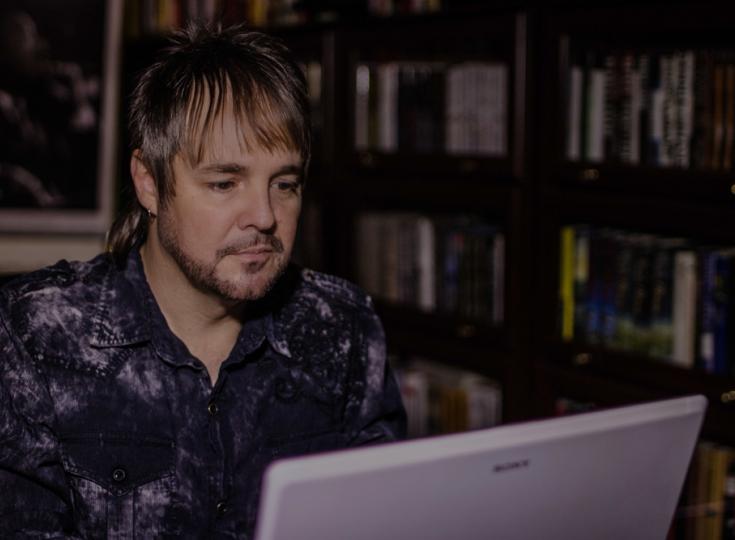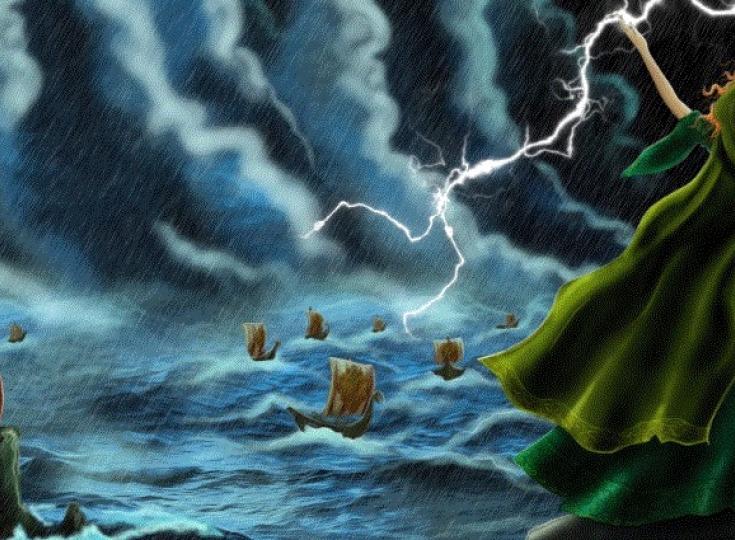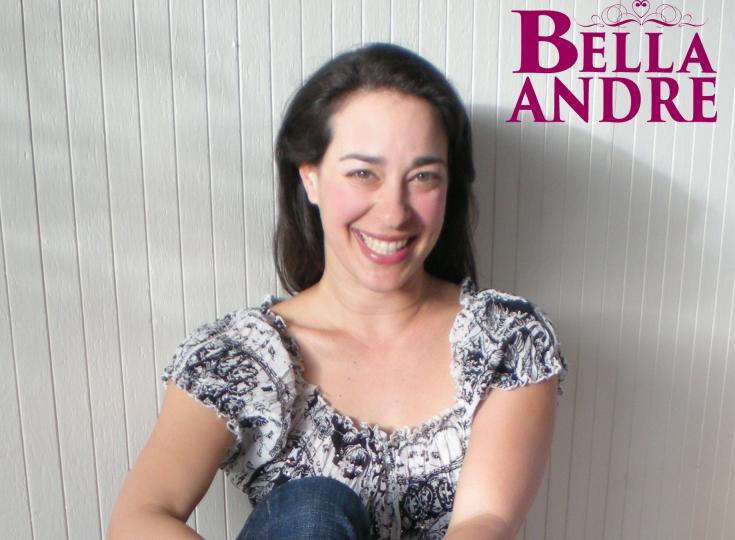Daniel Arenson - Power, Revenge and Redemption
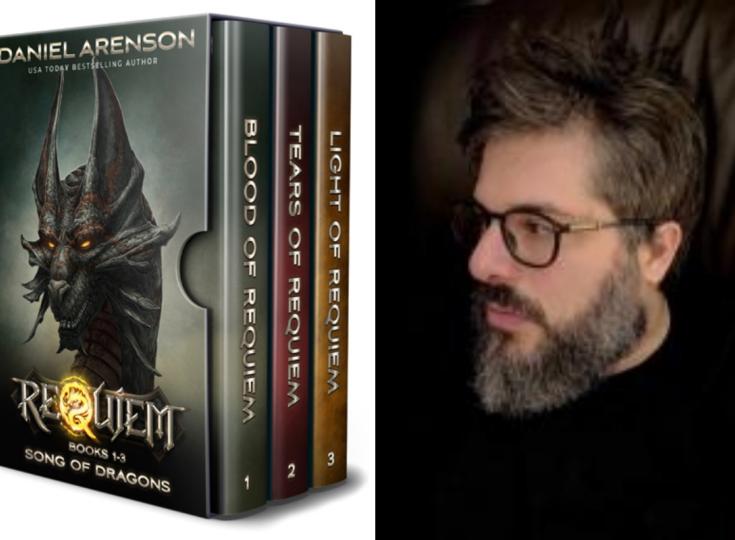
Daniel Arenson is a bookworm, proud geek, and USA Today bestselling author of fantasy and science fiction. His novels have sold over a million copies. The Huffington Post has called his writing "full of soul." He's written over eighty novels. As our Author of the Day, he tells us about his book, Song of Dragons: The Complete Trilogy.
Please give us a short introduction to Song of Dragons: The Complete Trilogy.
Song of Dragons, an epic fantasy trilogy, tells the story of Requiem: A fallen, ancient land whose children could become dragons... and whose last survivors dream of flying again. It’s the first trilogy I wrote in the universe of Requiem, which eventually grew to encompass seven trilogies exploring different eras in Requiem’s history.
The trilogy explores themes of power, revenge, and redemption. Why did you find these important to write about?
The inspiration for the world of Requiem came from Mozart’s Requiem. Classical music can paint vivid pictures in our imagination. The animators of Disney’s Fantasia knew this well, animating images and stories the music inspired in their minds. I did something similar while listening to Requiem. The music stirs very strong emotions. When I funneled those onto the page, it resulted in these powerful themes.
The world of Requiem is richly detailed, with various species and cultures. How did you go about crafting the world-building elements in the trilogy, and what inspired the diverse cultures and species present in Requiem?
I’m very much inspired by music. And also by folklore, mythology, and art. Many of the creatures in Requiem – dragons, phoenixes, wyverns, Nephilim, and others – come from legends and myths. Other creatures I created whole cloth, feeling they fit this world of huge, warring beasts.
One of the central conflicts revolves around Dies Irae's vendetta against the dragons of Requiem. Were there any challenges in portraying their perspectives effectively?
It was a challenge because Dies Irae might be the most evil villain I ever created. I sometimes try to create “sympathetic villains” whose motivations the reader can relate to. When it comes to Dies Irae, I decided to take a different approach. I wanted to create a representation of pure evil – evil on the scale of a Hitler or a Stalin. Since I consider myself a nice guy and not overly evil, that wasn’t always easy to write.
The characters in the trilogy undergo significant development and face numerous challenges. Which character arc resonated with you the most as the author, and were there any characters whose journeys surprised you during the writing process?
Gloriae’s story surprised me the most. She was the last character I created when outlining Requiem. She didn’t even exist in the original outline, and when I wrote the first chapter, at first she did not appear. But once I created her, I started the novel over from scratch, and she became pivotal. Her story arc evolved along with the storytelling.
The trilogy features intense battle scenes and confrontations. How did you approach writing these action sequences to ensure they were engaging and impactful for readers? Were there any specific techniques or inspirations you drew upon for these scenes?
I’m a visual thinker. I don’t think in words. I think in images. When I write, I imagine the scenes in my head like a movie, then try – to the best of my ability – to transcribe them in words. When it comes to writing battle scenes, I imagine them visually in my head, then hammer out the words, and I hope the reader gets to imagine them visually too. It’s sort of like a game of broken telephone, but even if readers imagine things differently than I do, they’ll still experience a story in their minds.
Religion plays a significant role in the story, evident in the names of the characters and their homeland, Requiem. How did you integrate religious symbolism into the narrative, and what significance does it hold for the characters and their world?
The names of the characters and locations come from Mozart’s Requiem, which was the inspiration to the trilogy. Kyrie Eleison, Agnus Dei, Benedictus, Lacrimosa, Gloriae – those are all taken from Mozart’s Requiem. The dragons of Requiem had their own religion. They worship the Draco constellation, which gives them their powers. Their religion is not fully structures or canonized and involves a lot of spirituality, which I think suits a mythical world of dragons.
The relationship dynamics between characters, such as familial bonds and friendships, are central to the story. How do you go about creating relatable characters?
For me, that is the most important part. I try to write character-driven stories. For me, and my style of writing, characters come first. I thought hard about how to create characters who feel like real people, with real emotions and personalities. Sometimes I think I achieve this. At other times, I struggle. I hope that the characters in Song of Dragons resonate with readers and feel “real.”
Throughout the trilogy, there are moments of triumph and tragedy. Which scene or event had the greatest emotional impact on you as the author, and how did you ensure these emotional beats resonated with readers?
There is a character death in the second novel (I won’t reveal who) which was devastating to write. That was maybe the hardest scene for me to write. But alongside the tragedies, I hope there are enough moments of hope and triumph too. I think a good story often features both sides of the emotional coin. Song of Dragons tends to be fairly dark, with quite a bite of tragedy and suffering, but I always want to include hope and love as well. Sometimes the right balance can be difficult to strike. Like many fantasy writers, I’m very much inspired by Tolkien, who understood how to write bittersweet stories – stories with tragedy and loss which still feel hopeful.
The antagonist, Dies Irae, is depicted as a formidable and complex villain. How did you approach crafting his character arc, and were there any challenges in making him both compelling and detestable to readers?
As mentioned in an earlier answer, Dies Irae is pure evil. He is sadistic, murderous, and overwhelmingly awful. However, I did try to explain why. He’s not evil for evil’s sake. In flashback, we see suffering he experienced as a young man, which created the monster and drove him to a life of revenge.
The trilogy concludes with a final confrontation between the protagonists and Dies Irae. Without giving away spoilers, how did you approach crafting the resolution of the series? Did you know right from the start how this trilogy was going to end?
I didn’t know how it would end. I did some outlining of the first novel. But by the second novel, I was writing by the seat of my pants, making things up as I went along. But I always knew the trilogy would end up such a big confrontation, the final battle between the heroes and villain.
You have written extensively in the fantasy and science fiction genres. How does "Song of Dragons: The Complete Trilogy" compare to your other series in terms of style, themes, and storytelling?
Song of Dragons is an early work of mine, which I wrote in 2011, relatively early in my writing career. I had written novels before Song of Dragons but never a series. I think the writing is very raw, and you can tell I wrote it early on. At times, I even thought of revisiting and rewriting it. But I think I’ll leave it as it is. It captures well how I wrote stories in those early days. Technically, I don’t know if it’s on par with my current works. But there is a rawness and earnestness to it, I think. At least when I look back, that’s how I remember it.
Overall, what aspects of "Song of Dragons: The Complete Trilogy" did you find most rewarding or challenging to write? Would you revisit this world in future works, or do you feel satisfied with the conclusion of the series?
I definitely want to write more stories in the world of Requiem. I haven’t written a Requiem story in almost a decade. I want to again someday. There will be more.
What are you working on right now?
I’ve been writing a science fiction series titled A Prayer for Earthrise. The series is about an alien invasion and old heroes who must rise again to save Earth. The first novel is titled Hear, O Earth! You can find the series on Amazon here: https://www.amazon.com/dp/B0CD53Y2G4
Where can our readers discover more of your work or interact with you?
First visit my website, where you can download three free novels: https://danielarenson.com/
You can find me on Facebook here: https://www.facebook.com/DanielArenson
And I’m on Twitter: https://twitter.com/DanielArenson
See you there, and thank you for reading.
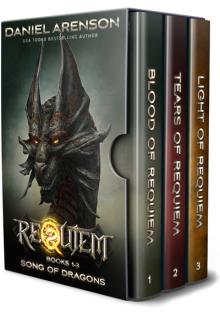
Song of Dragons, an epic fantasy trilogy, tells the story of Requiem: A fallen, ancient land whose children could become dragons... and whose last survivors dream of flying again. With hundreds of thousands of copies sold, the Song of Dragons novels have captivated readers around the world. Now you can read the entire trilogy in one collection.
